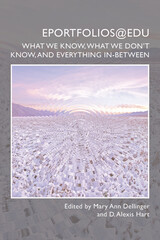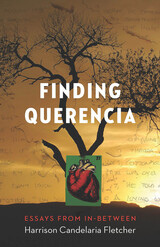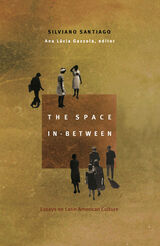3 books about - Between

ePortfolios@edu
What We Know, What We Don’t Know, and Everything In-Between
Mary Ann Dellinger
University Press of Colorado, 2021
This edited collection offers a comprehensive examination of best practices in creating, implementing, and assessing an ePortfolio program. Contributors to the volume (ePortfolio practitioners/scholars from four continents) share triumphs and lessons learned from a first-person perspective. Designed as a go-to resource for ePortfolio novices, seasoned practitioners, and curious explorers alike, ePortfolios@edu allows readers to close the book and immediately apply whatever information they found most appropriate for their course, program, or institution. To that end, contributors embed screenshots and diagrams within their essays and addend their chapters with relevant timelines, prompts, rubrics, and other ready-for-use materials. Reflecting the emblematic interconnectedness of ePortfolio development, ePortfolios@edu complements other publications on ePortfolios by offering new perspectives and a collection of resources that will be of great value to the expanding network of ePortfolio practitioners/scholars.
This book is also available as an open access ebook through the WAC Clearinghouse.
This book is also available as an open access ebook through the WAC Clearinghouse.
[more]

Finding Querencia
Essays from In-Between
Harrison Candelaria Fletcher
The Ohio State University Press, 2022
Winner, 2022 New Mexico-Arizona Book Award (Autobiography/Memoir category)
With its roots in the Spanish verb querer—“to want, to love”—the term querencia has been called untranslatable but has come to mean a place of safety and belonging, that which we yearn for when we yearn for home. In this striking essay collection, Harrison Candelaria Fletcher shows that querencia is also a state of being: the peace that arises when we reconcile who we are. A New Mexican of mixed Latinx and white ethnicity, Candelaria Fletcher ventures into the fault lines of culture, landscape, and spirit to discover the source of his lifelong hauntings. Writing in the persona of coyote, New Mexican slang for “mixed,” he explores the hyphenated elements within himself, including his whiteness. Blending memory, imagination, form, and language, each essay spirals outward to investigate, accept, and embrace hybridity. Ultimately, Finding Querencia offers a new vocabulary of mixed-ness, a way to reconcile the crosscurrents of self and soul.
With its roots in the Spanish verb querer—“to want, to love”—the term querencia has been called untranslatable but has come to mean a place of safety and belonging, that which we yearn for when we yearn for home. In this striking essay collection, Harrison Candelaria Fletcher shows that querencia is also a state of being: the peace that arises when we reconcile who we are. A New Mexican of mixed Latinx and white ethnicity, Candelaria Fletcher ventures into the fault lines of culture, landscape, and spirit to discover the source of his lifelong hauntings. Writing in the persona of coyote, New Mexican slang for “mixed,” he explores the hyphenated elements within himself, including his whiteness. Blending memory, imagination, form, and language, each essay spirals outward to investigate, accept, and embrace hybridity. Ultimately, Finding Querencia offers a new vocabulary of mixed-ness, a way to reconcile the crosscurrents of self and soul.
[more]

The Space In-Between
Essays on Latin American Culture
Silviano Santiago
Duke University Press, 2001
Silviano Santiago has been a pioneer in the development of concepts crucial to the discourse of contemporary critical and cultural theory, especially postcolonial theory. The notions of “hybridity” and “the space in-between” have been so completely absorbed into current theory that few scholars even realize these terms began with Santiago. He was the first to introduce poststructuralist thought to Brazil—via his publication of the Glossario de Derrida and his role as a prominent teacher. The Space In-Between translates many of his seminal essays into English for the first time and, in the process, introduces the thought of one of Brazil’s foremost critics and theorists of the late twentieth century.
Santiago’s work creates a theoretical field that transcends both the study of a specific national literature and the traditional perspectives of comparative literature. He examines the pedagogical and modernizing mission of Western voyagers from the conquistadors to the present. He deconstructs the ideas of “original” and “copy,” unpacking their implications for the notions of so-called dominant and dominated cultures. Santiago also confronts questions of cultural dependency and analyzes the problems involved in the imposition of an alien European history, the cultural displacements experienced by the Indians through their religious conversion, and the hierarchical suppression of native and Afro-Brazilian values.
Elegantly written and translated, The Space In-Between will provide insights and perspectives that will interest cultural and literary theorists, postcolonial scholars, and other students of contemporary culture.
Santiago’s work creates a theoretical field that transcends both the study of a specific national literature and the traditional perspectives of comparative literature. He examines the pedagogical and modernizing mission of Western voyagers from the conquistadors to the present. He deconstructs the ideas of “original” and “copy,” unpacking their implications for the notions of so-called dominant and dominated cultures. Santiago also confronts questions of cultural dependency and analyzes the problems involved in the imposition of an alien European history, the cultural displacements experienced by the Indians through their religious conversion, and the hierarchical suppression of native and Afro-Brazilian values.
Elegantly written and translated, The Space In-Between will provide insights and perspectives that will interest cultural and literary theorists, postcolonial scholars, and other students of contemporary culture.
[more]
READERS
Browse our collection.
PUBLISHERS
See BiblioVault's publisher services.
STUDENT SERVICES
Files for college accessibility offices.
UChicago Accessibility Resources
home | accessibility | search | about | contact us
BiblioVault ® 2001 - 2025
The University of Chicago Press









